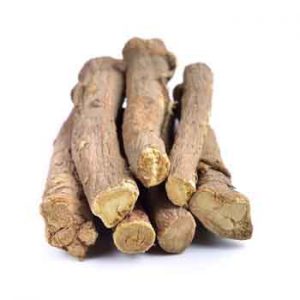
More evidence that low-calorie sweeteners are bad for your health
Studies show that artificial sweeteners can raise the risk of hypertension, metabolic syndrome, type 2 diabetes and heart disease, including stroke.

Natural Health News — The skin is constantly challenged, and very often harmed, by environmental stressors such as UV radiation and chemicals.
To cope with UV radiation, various skin cells have evolved a complex protective antioxidant defense system. These days we generally help the process along by using suncreams. The problem with many suncreams is that they are made from undesirable chemicals, some of which have been shown to be carcinogenic. Knowing this the search has been on for some time for natural alternatives that don’t contain risky ingredients.
New laboratory research published in the journal Experimental Dermatology highlights a new plant-derived agent which protects skin from the harmful effects of UV irradiation.
“We found out that the antioxidant active Licochalcone A, which is the main component of the root extract of the plant Glycyrrhiza inflata (Chinese Licorice), is able to protect the skin from subsequent UV irradiation damage from within by strengthening the skin’s own defense systems. Thus plant extracts with the described profile are able to provide a protective shield from sun exposure supporting and going beyond the action of sunscreens regarding sun protection,“ said Gitta Neufang, a researcher involved in the work from Beiersdorf AG, Hamburg, Germany.
Licochalcone A has previously been shown to be an antioxidant, anti-irritant, and anti-inflammatory substance that can helps to provide protection to the skin cells by neutralising free radicals. This means is has a role to play in helping to prevent environmental damage, as well as reducing hyperreactions and inflammatory skin reactions.
In order to test the effects of the plant-derived active Licochalcone A in cell culture, Neufang and colleagues isolated human skin cells and irradiated them with solar simulated light mimicking sun exposure. They were able to show that skin cells pretreated with Licochalcone A produced a higher amount of ‘self-protecting’, antioxidant molecules.
Working with the body
Consequently, significantly less harmful free radicals were detected in Licochalone A treated human skin cells. In addition, they also conducted a study with healthy volunteers demonstrating that the application of a lotion containing Licochalcone A-rich root extract on the inner forearms for two weeks protected the skin from damage after UV irradiation.
These findings show that the skin’s own defense system can be stimulated by the application of licorice extract. In combination with UV-filters this approach therefore might provide superior sun protection by not only offering physical but also biological sun protection.
“Even with the best sun-protecting filter system (SPF50+) 2% of UV-rays still reach the skin and cause damage. We hope that our study helps to improve the effectiveness of sunscreens to protect from the harmful aspects of sun exposure.” concluded Gitta Neufang.

Please subscribe me to your newsletter mailing list. I have read the
privacy statement